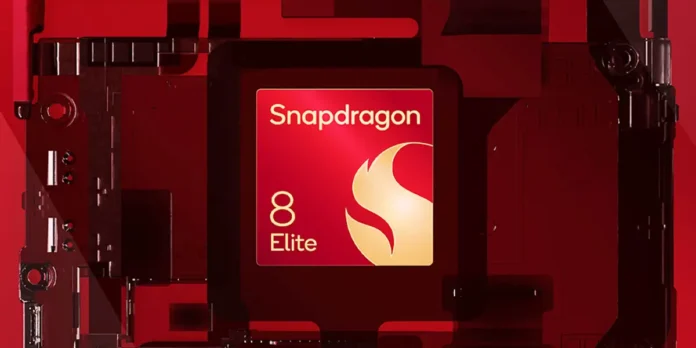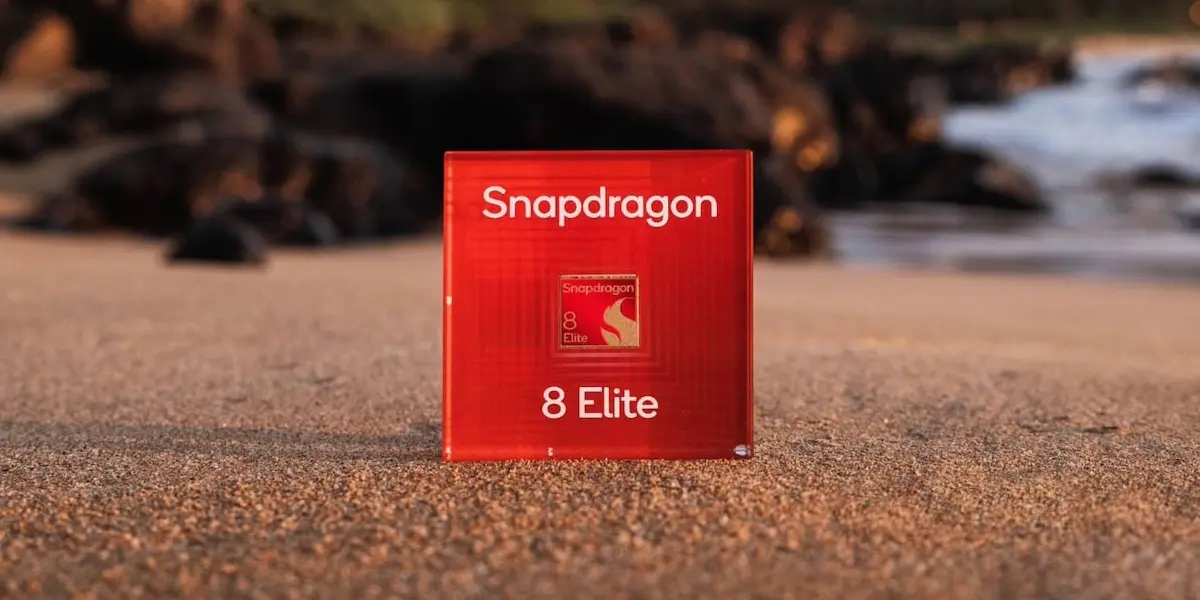Qualcomm Snapdragon 8 Elite: The Premium Chip That Challenges the Competition

A few weeks ago, the mobile market was surprised by the release of the MediaTek Dimensity 9400. It was powerful enough to make other chips seem weak, and there are rumors it will be used in the Samsung Galaxy S25.
Table of Contents
Qualcomm quickly responded by introducing the Snapdragon 8 Elite, a new powerful chip for mobile phones that boosts competition in the market. Here are all the details.
All the specifications of the Qualcomm Snapdragon 8 Elite

| Characteristics | Qualcomm Snapdragon 8 Elite |
| CPU | 2 x Oryon Prime @ 4.32 GHz . 6 x Oryon Performance @ 3.53 GHz. |
| Manufacturing process | TSMC’s second generation 3 nanometers . |
| GPU | Adreno 760 (name unconfirmed). |
| Artificial intelligence | Hexagon NPU with multimodal generative AI and support for AI Assistants . |
| RAM and storage | Up to 24GB LPDDR5X RAM @ 5.3GHz . UFS 4.0 storage. |
| Screen |
Variable refresh rate from 1 to 240 Hz , 10-Bit color depth and support for SDR, HLG, HDR10, HDR10+, HDR Vivid and Dolby Vision |
| Camera | 18-Bit Spectra Triple ISP with Cognitive AI Technology.
Supports HDR, HDR10, HDR10+, HLG, Dolby Vision , DCG+VS, DCG, 10-bit color depth and more. |
| Connectivity |
|
| Burden | Qualcomm Quick Charge 5 . |
The Snapdragon 8 Elite has up to 45% more power for the CPU and 40% more for the GPU, while using energy more efficiently.
Even though many expected the Snapdragon 8 Gen 4, Qualcomm changed the name to Snapdragon 8 Elite. This new name for their top chip for phones and laptops suggests it is the best, and that is true.
The Snapdragon 8 Elite is the first chip made by Qualcomm using 3nm technology. This helps it use less energy and have more power. Here is how it compares to the Snapdragon 8 Gen 3:
- – CPU: Up to 45% faster in all types of tasks.
- – GPU: Up to 40% better for gaming and 35% better for Ray Tracing.
- – NPU: Up to 45% stronger in AI tasks.
- – Power efficiency: The Snapdragon 8 Elite is, on average, 27% more efficient, and can be up to 44% better for the CPU, 40% for the GPU, and 45% for AI.
How did Qualcomm do all this with the Snapdragon 8 Elite? Let’s look at it and some important parts of this chip.
It has a new layout (no energy-saving cores), cameras up to 320 MP, and screens that refresh at 240 Hz.
Qualcomm shared details about its CPU. The Snapdragon 8 Elite changes from the old 1+3+2+2 core setup to a simpler one with just two groups: one has 2 cores and the other has 6 cores. All cores use Qualcomm’s new “Oryon” design and are arranged like this:
- Prime Cluster: 2 cores that can run up to 4.32 GHz and are very powerful.
- Performance Cluster: 6 cores that can run up to 3.53 GHz.
- There are no energy-saving cores now, but as noted, this chip doesn’t really need them.
- Powerful cores don’t always run at full speed unless they have to, and the new design allows for good performance without energy-saving cores.
We don’t have a name for the new Adreno GPU yet, but we think it will be called Adreno 760. You have already seen how much better it is than the Adreno 750. Now, we can add that it works with Nanite, a new and powerful technology in Unreal Engine 5.
Qualcomm didn’t say if the Hexagon NPU on this chip is new, but we think it is because of the big performance boost. They also mentioned it can run different language models on its own. Here are some details about the Snapdragon 8 Elite:
– It can support up to 24GB of LPDDR5X RAM at speeds of up to 5.3GHz.
– Its Spectra Triple ISP is up to 33% faster and can handle cameras up to 320MP.
– Its Snapdragon X80 5G modem can reach speeds of up to 10 Gbps.
– The Fast Connect 7900 supports WiFi 7 (up to 5.8 Gbps), Bluetooth 6, and UWB.
– It can handle QHD+ at 240 Hz or 4K at 60 Hz displays.
– Snapdragon Sound supports aptX Adaptive and Lossless, Qualcomm Aqstic, and more.
You have information up to October 2023.
Which will be the first phones to use the new Snapdragon 8 Elite?

The list of phones using the Snapdragon 8 Elite will probably grow in the next few months. Here are the phones expected to use it:
– Xiaomi 15 series (launching October 22 in China)
– HONOR Magic 7 series (launching October 30 in China)
– iQOO 13 series (launching October 30 in China)
– OnePlus 13 (launching October 31 in China)
– ASUS ROG Phone 9 (launching November 19)
– Realme GT 7 Pro (launching in November, first in 10 countries)
– Nubia RedMagic 10 Pro (no release date yet)
– Nubia Z70 Ultra (no release date yet)
OPPO also said they will have at least one phone with this chip, but they haven’t shared the name or launch date. It won’t be the Find X8 or Find X8 Pro since those will use the MediaTek Dimensity 9400.
This information is current as of October 2023.